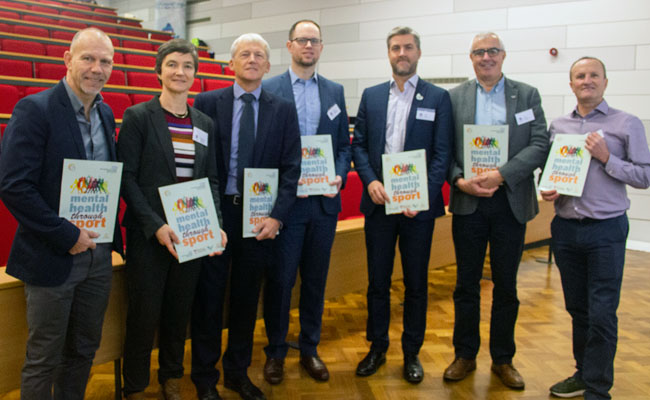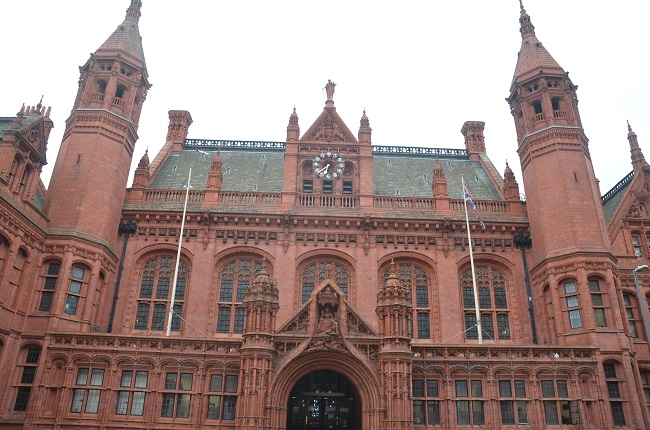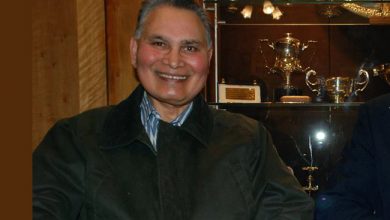Commonwealth Games legacy to help heal mental ill-health

Mental health and sport and physical activity leaders have pledged to champion ground-breaking work across the West Midlands promoting how sport and getting active can prevent mental ill-health and improve wellbeing.
Around 200 delegates, including academics and researchers, representatives from sporting organisations, local and national government, came together for the Mental Health Through Sport Symposium at Birmingham’s Newman University.
Prompted by the Birmingham 2022 Commonwealth Games and the ambition to create long-term wellbeing and physical activity legacies, they discussed the benefit being physically active in preventing and improving mental ill-health and how to improve access for people with mental health problems.
Ian Reid, chief executive of Birmingham 2022, speaking at the symposium, said: “All of the partners involved in the Birmingham 2022 Commonwealth Games are committed to delivering a strong legacy for the city and the region as we absolutely must make the most of the once-in-a-lifetime opportunity that hosting this event will provide.
“A key part of our mission for Birmingham 2022 is to use the Games as a way of inspiring people from across the West Midlands region to improve their health and wellbeing and so events like this symposium are a fantastic way of sharing ideas and looking at how we can all work together to achieve this aim.”
Delegates heard how the sport and physical activity sector needs to lead the way in normalising mental ill-health and that awareness is everyone’s responsibility.
The symposium, which took place yesterday (Monday December 16), was the second annual one-day conference organised in partnership by the West Midlands Combined Authority (WMCA), Sport Birmingham, Newman University and the Birmingham and Solihull Mental Health NHS Foundation Trust.
Dr Amanda Gatherer, the Trust’s chief psychologist, who chairs the Mental Health Through Sport Network, hailed the progress made as a result of the partnership during the last 12 months.
Highlights have included the launch of table tennis sessions at the Trust’s Juniper Centre in Moseley, through the BAT Foundation, as a therapy for sufferers of dementia and other memory and brain functioning loss.
Dr Gatherer said: “This rehabilitation focus using table tennis is a direct result of the work of the partnership steering group.
“We are also developing strong links with local sports governing bodies and organisations, encouraging them through training and awareness to be more accessible to people with mental health problems and we are working to draw on funding to support new initiatives.”
The symposium saw the launch of the West Midlands Sport, Physical Activity and Mental Health Network, led by Sport Birmingham with funding from mental health charity Mind and Sport England.
The network brings together organisations from both sectors to work together to increase the number of groups across the region who are equipped with the skills to support and engage people with mental health problems in physical activity.
Cllr Izzi Seccombe, leader of Warwickshire County Council and WMCA portfolio holder for wellbeing, said: “Research shows that adults taking part in daily physical activity have a 20% to 30% lower risk of depression, and exercise can equal the effect of standard anti-depressant drugs.
“We hope the commitment to work better together to help create and co-deliver the Games’ legacy of increasing the use of sport and physical activity to prevent poor mental health, help restore and maintain good mental health and reduce stigma, will make a real difference to people’s lives.”
Simon Hall, WMCA physical activity policy and delivery lead, said: “Delegates listened to people who have experienced mental ill-health, shared ideas and best practice and made a series of commitments to enhance wellbeing.
“These included reaching out to people who want to talk or help in an organisation, looking after one another in the workplace and developing mental health awareness to reduce the stigma around mental ill-health.”
Mike Chamberlain, chief executive of Sport Birmingham, said: “As the city’s Active Partnership, Sport Birmingham works to use the power of sport and physical activity to improve lives – we support all local clubs and organisations who help make Birmingham more active, and it’s essential that all providers are knowledgeable and confident to understand the positive impact they can have on mental health.”
Professor Peter Childs, acting vice-chancellor of Newman University, added: “The university is delighted to be hosting the second annual symposium.
“It is also very exciting to launch the West Midlands Network for Sport, Physical Activity and Mental Health Network which plans to bring together people and ideas to transform access to sport for people with mental health conditions.”
Video footage of the table tennis sessions are available at https://www.youtube.com/
Video interview with Mike Chamberlain can be found here https://www.youtube.com/
Video interview with Dr Amanda Gatherer can be found here https://www.youtube.com/





